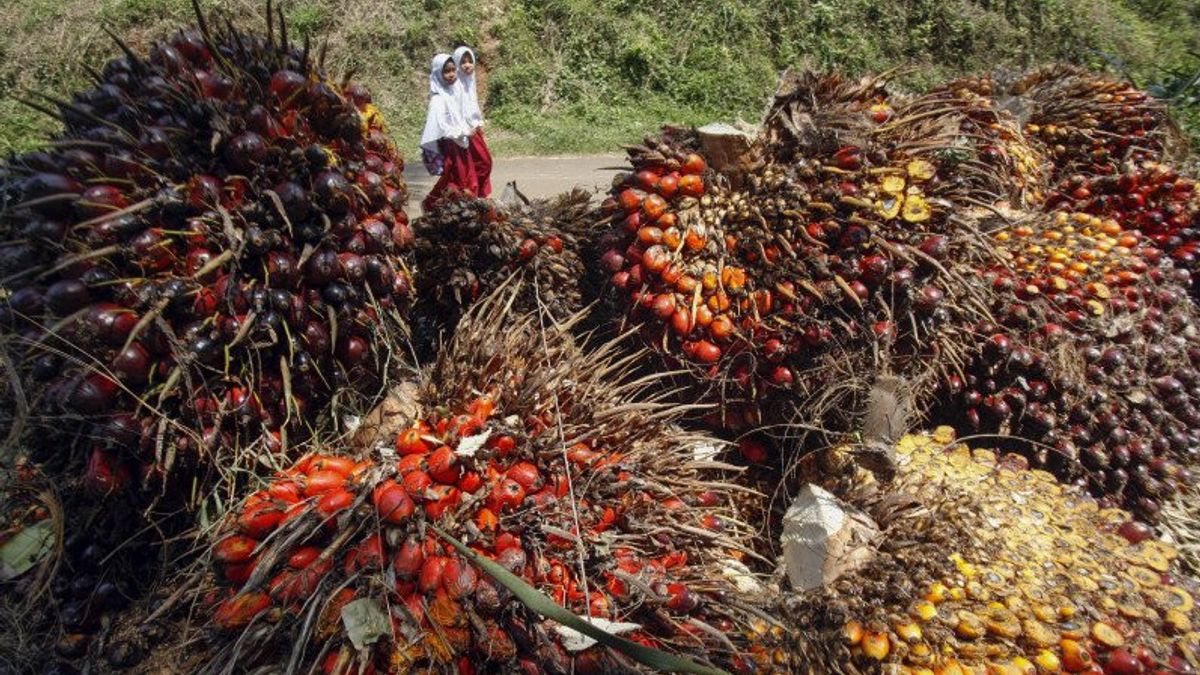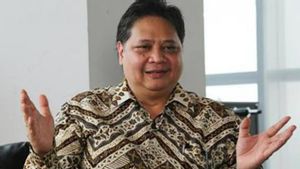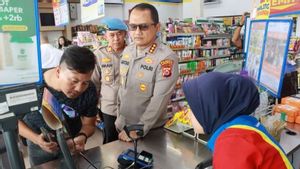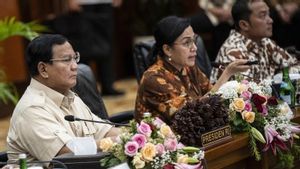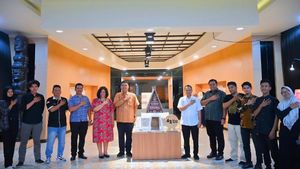JAKARTA - Coordinating Minister for the Economy Airlangga Hartarto hopes that Indonesia's palm oil productivity can be increased in order to meet the growing world demand for vegetable oil.
"With an area of 41 percent of the people's plantations, we realize that there is still a lot of homework to be done, such as the low productivity of the plants because they are old and do not use superior clones," said Airlangga Hartarto as quoted by Antara, Wednesday, August 24.
He hopes that the governors and ranks of the regional government as well as business players in the palm oil industry can increase the productivity of palm oil, one of which is the people's palm oil rejuvenation program (PSR).
"With the important role of the palm oil industry both nationally and regionally, we expect the governor and local government officials as well as palm oil industry business players to continue to encourage the implementation of the PSR (People's Palm Oil Rejuvenation) program with funding sources from BPDPKS," he said.
Meanwhile, Secretary General of the Indonesian Palm Oil Association (Sekjen Gapki) Edi Martono said his party was trying to increase oil palm production capacity with intensification, considering that the government was still conducting a moratorium on new land clearing for oil palm since 2018.
Edi explained that intensification was carried out through the use of superior seeds, good care, and maintaining soil fertility with the use of organic fertilizers.
He explained that several Gapki members had done this by using organic fertilizers made in their own gardens.
"Now we have our members from 3 tons per hectare per year to six tons per hectare per year," said Edi.
In addition to increasing productivity, Airlangga also hopes that regional heads will oversee the sustainability of investment in the palm oil industry that already exists in each region as well as provide legal certainty for business, so that investment will continue.
"Protecting the partnership that has been built between smallholder oil palm plantations and large plantations. Facilitating the resolution of problems related to the palm oil industry, both those related to land and communities. Continue to promote the palm oil industry in the region, so that this industry will increasingly contribute to regional development," said Airlangga.
Airlangga said the Indonesian palm oil industry has an important role in the Indonesian economy, both now and in the next few decades.
The palm oil industry has become the main source of income for around 17 million households, farmers and employees who work in the on-farm and off-farm sectors.
As a trading commodity, foreign exchange exports from the palm oil industry will reach 35.53 billion US dollars in 2021, which makes Indonesia's trade balance surplus of 33.82 billion US dollars.
Currently, exports of palm oil products are aimed at more than 125 countries in the world and have been used for various purposes, both for food, energy and various other downstream industries.
In addition, palm oil production has also become a raw material for biodiesel which plays a very important role in suppressing foreign exchange imports from oil and gas.
The English, Chinese, Japanese, Arabic, and French versions are automatically generated by the AI. So there may still be inaccuracies in translating, please always see Indonesian as our main language. (system supported by DigitalSiber.id)
